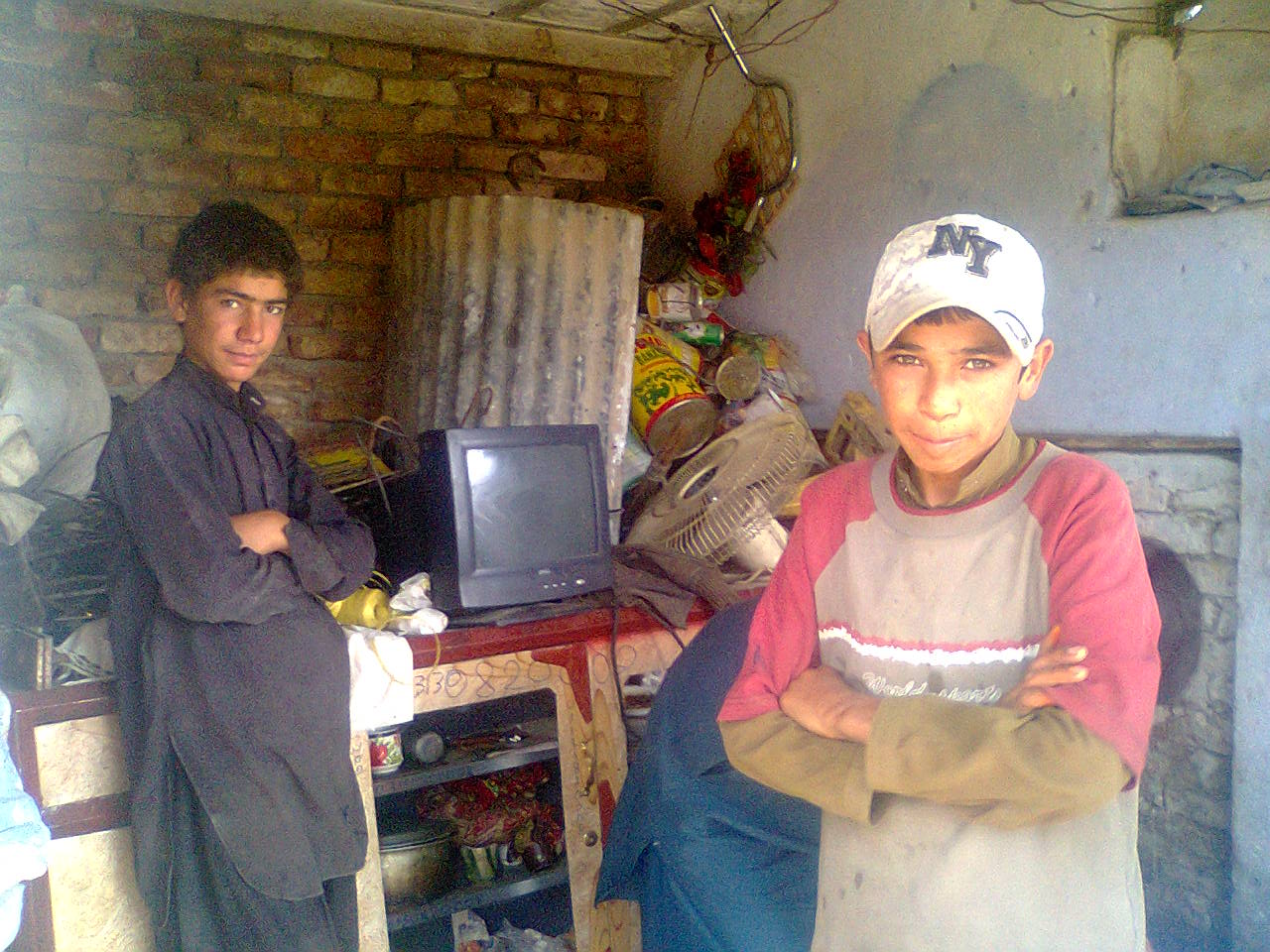
Child Labors Jummah and Razzaq. Photo by Sami Parvez
The post was written by Adnan Aamir for The Balochistan Point [1]. It is republished on Global Voices under a content-sharing agreement.
Everyday when the sun rises Jummah Khan and Razzaq leave their homes, with large plastic bags hanging on their tender shoulders, to search for garbage. In the evening, they sell their daily collection of garbage.
Like thousands of other children in Balochistan's capital city Quetta, 12 year-old Jummah and 11 year-old Razzaq are forced into child labor because of extreme poverty.
Nearly a third of Pakistan's population lives below the poverty line, and in Balochistan, the country's poorest province, the situation is worse: [2]almost 52 percent of the population lives below the poverty line.
There are no official statistics on the number of child laborers in Quetta, but the non-profit Society for Empowering Human Resources (SEHER), estimates that more than 10,000 children work [3] in the city of 1.3 million people. SEHER estimates that 60% of the children are involved in garbage picking.
The government of Balochistan does not seem to think curbing child labor is a priority. In fact, last year the provincial assembly failed to pass [4]the Balochistan Prohibition of Employment of Children Bill.
This bill is the least stringent compared to child labor prevention legislation in Pakistan's three other provinces. Unlike the other bills, this one considers children to be 12 and under, (the others protect children 14 and under) and this one does not prevent child workers that are 14-18 years old from working in hazardous conditions.
Until the province doesn't pass its own legislation, the federal government's child protection laws, which includes monitoring by 34 child labor inspectors, should be enforced, but they rarely are. In fact, the country's law also mandates free education for all children till they are 16, but 66% of Balochistan's children [5] do not go to school.
Jummah Khan says he earns $1.5 to $3 a day by reselling garbage. “I work to support my family because my father doesn’t do any job,” said Jummah Khan. He has one brother and two sisters and all of them work.
“If we don’t work then our family can’t get anything to eat,” lamented Jummah Khan. “I have been working since I was 4 years old and I don’t think I will stop collecting garbage any time soon,” said Jummah with clear disappointment on his face.
“I work because I don’t have a father,” added Razzaq quietly. His father passed away a few years ago. He says ever since he can remember, he has been working.
Razzaq refused to tell me how much he earned. His friend said he was probably afraid that I would snatch his earnings from him.
Jummah Khan and Razzaq denied facing any sort of abuse while garbage picking. Whether they were actually not abused or hiding their abuse experiences due to shame, which is common in Pakistan, one can’t say with certainty.
However, many child workers are not fortunate.
Abdul Samad, buys garbage picked up by child laborers like Jummah and Razzaq. Samad says that garbage-picking children are not only abused but often under-paid by the traders who buy garbage from them.
“Child laborers don’t have anyone to look after them and that makes them vulnerable to all sort of abuses,” claims Samad. “I can’t share stories of child labor abuses because I feel disgusted,” exclaimed the garbage vendor.
Samad said most of the child laborers he dealt with were ethnic Pakhtuns, either Afghan refugees or orphan children from Pakistan's northwestern Khyber Pakhtunkhwa province.